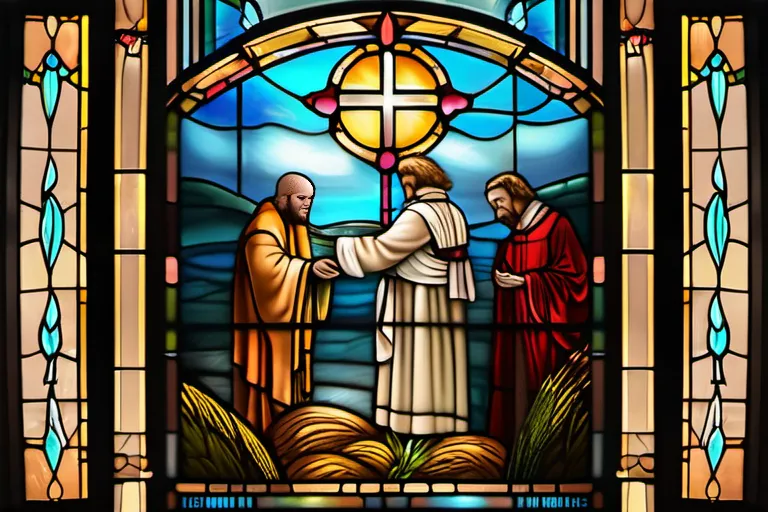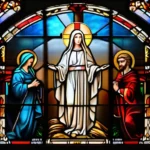Explore the fundamental tenets, history, and practices of Baptist beliefs.
Baptists are a significant branch of Christianity with unique beliefs and practices. In this article, we delve into the core beliefs that define Baptists and their history.
The History and Origins of Baptists
Imagine tracing back the roots of Baptist beliefs, akin to unearthing ancient artifacts that piece together a complex history. Where did it all begin? The origins of Baptists can be traced to the early Christian church, but the modern Baptist movement emerged much later, with significant influences from the Anabaptist and English Puritan traditions.
One pivotal moment in the development of Baptist beliefs was during the English Civil War (1642-1651), when religious freedom became a pressing issue. This period saw the rise of groups that rejected infant baptism, favoring adult immersion as a symbol of personal faith and repentance. These early Baptists challenged the established Church of England, much like seedlings breaking through the soil to find sunlight.
The Baptist movement gained momentum in the 17th century with key figures such as John Smyth and Thomas Helwys, who established independent congregations based on their beliefs. The metaphorical journey from a small, persecuted group to a global religious denomination is akin to a river that starts as a mere stream but eventually becomes a mighty force.
Over the centuries, Baptists have faced numerous challenges, including persecution and internal disagreements over theological matters. However, their core belief in individual conscience and the authority of Scripture has remained constant, like a lighthouse guiding ships through stormy seas. This steadfastness has allowed Baptists to adapt while maintaining their foundational beliefs.
Baptism: The Central Rite of Baptists
Baptism, often seen as the gateway to spiritual life, holds a central place in Baptist beliefs and practices. But what exactly does baptism signify within this faith? Is it merely a symbolic act, or is there more to its significance than meets the eye?
In exploring Baptist views on baptism, one cannot help but wonder about the early Christians who practiced immersion as their method of initiation. Was it simply an outward expression of an inward transformation, or did it carry deeper theological implications? For Baptists, baptism is seen as a public declaration of faith in Christ and a symbol of death to sin and new life in Him.
The practice itself varies among Baptist denominations. Some insist on believer’s baptism by immersion, emphasizing that only those who have come to a personal faith in Jesus should be baptized. This highlights the importance of individual commitment and understanding of the Christian message. How can one truly follow Christ if they haven’t personally experienced His call?
The theological interpretations of baptism among Baptists often revolve around the idea of regeneration and new birth. This means that through faith in Christ, individuals are spiritually reborn, a process symbolized by baptism. But is this spiritual transformation a one-time event or does it continue throughout life? Baptist theologians might argue for the latter, seeing baptism as an ongoing commitment to live according to Christian principles.
In conclusion, while the act of baptism may seem simple on the surface, its deep theological roots and practical implications make it a profoundly meaningful ritual in Baptist communities. It serves not only as a marker of one’s faith journey but also as a constant reminder of the eternal covenant between God and His people. How do you see baptism fitting into your own spiritual narrative?
The Role of the Bible in Baptist Beliefs
How does one truly grasp the heart of Baptist beliefs? One place to start is understanding their deep reverence for the Bible. It’s not just a book; it’s the word of God, a light in the darkness guiding every aspect of their faith. Imagine the Bible as a treasure map leading through life’s challenges—each verse an instruction or promise to navigate by.
In Baptist eyes, the Bible is interpreted literally and directly, often through what they call a “plain sense” reading. This approach contrasts with some other Christian denominations that might use allegory or metaphor in their interpretations. For Baptists, every word holds equal weight and meaning, as if it were etched in stone rather than written on papyrus or paper.
But why does this matter so much? For a Baptist, the Bible is not just informative; it’s directive. It tells them who God is, what He requires of believers, and how to live a godly life. In many ways, reading the Bible is like drinking from a fountain—each sip quenches spiritual thirst, offering guidance and comfort in times of need.
Their relationship with the Bible is one of constant engagement and application. Baptists believe that the truths found within its pages are not only timeless but also deeply personal. Every believer is called to study it diligently, meditate on it daily, and allow its teachings to shape their character and actions.
So, what does this mean for everyday life? It means that for a Baptist, every decision—from how they treat others to the choices they make in business—is rooted in scripture. The Bible is more than just a text; it’s a lifeline, providing direction and support through all seasons of life.
In essence, understanding Baptists’ view on the Bible is key to unlocking their faith. It’s not merely about reading words but about living them out every day. The more one delves into this, the clearer it becomes why Baptists hold such a deep and abiding respect for their sacred text.
Baptist Church Governance and Leadership
Baptist churches are known for their unique structure, which revolves around the concept of congregationalism. But what exactly does this mean? When we talk about Baptist church governance and leadership, it’s like diving into a democratic system where every voice counts, much like a community coming together to make decisions that affect them all.
In a Baptist congregation, the structure is often described as ‘congregationalist’ or ‘fellowship.’ This means that each church operates with autonomy, making its own rules and decisions. It’s like every member has a vote in the governance process—each voice carries equal weight. How does this differ from other denominations? In some churches, the pastor might have more authority, but in Baptist congregationalism, the leadership is collective.
The role of pastors within Baptist churches is also significant yet different. A pastor serves as a leader and teacher, guiding the community with wisdom and spiritual direction. But this leadership is not absolute; it’s akin to being a guiding star rather than an authoritative ruler. Pastors are chosen by the congregation and can be removed if their leadership is deemed ineffective or unaligned with Baptist values.
In summary, Baptist church governance emphasizes equality among members, where every individual’s voice has value. This structure not only fosters a sense of community but also ensures that decisions are made democratically, reflecting the core belief in individual liberty and free will. Understanding this framework is crucial to grasping the essence of Baptist leadership and how it differs from other religious structures.
By exploring these concepts, we can see how the Baptist approach to church governance and leadership embodies their commitment to individual responsibility and autonomy. This structure supports the broader Baptist belief in a direct relationship between individuals and God, free from institutional hierarchy.
The Baptist Approach to Salvation
When we dive into understanding the Baptist perspective on salvation, it’s like peeling back layers of an onion. Baptists believe that salvation comes through faith in Jesus Christ and a personal relationship with Him. But what exactly does this entail? How do Baptists view these core beliefs?
Firstly, faith is central to the Baptist understanding of salvation. It’s not just about intellectual assent or knowledge; it’s an act of trust and commitment. Could you imagine faith as a journey where every step is a leap of trust? Baptists see faith as something that moves from the mind to the heart, transforming one’s life.
Next, repentance plays a vital role in this process. It involves turning away from sin and committing to a new path. How often do we find ourselves caught in the cycle of sin and repentance? For Baptists, true repentance isn’t just a one-time decision but an ongoing process of seeking forgiveness and making changes.
Finally, regeneration is where the transformation begins. It’s the Holy Spirit’s work in our hearts to change us from within. Think of it as a gardener tending to a seed, nurturing its growth until it blossoms into a beautiful flower. Baptists believe that regeneration is essential for true spiritual life and growth.
But how do these beliefs come together? Imagine salvation as a river. Faith is the source, repelling us from sin; repentance is the current, guiding us toward Christ; and regeneration is the deep water, where transformation truly happens. Together, they create a powerful flow that sustains our spiritual journey.
Understanding these core beliefs helps us appreciate why Baptists place such emphasis on personal faith experiences and direct encounters with God. It’s not about doctrine alone but about experiencing the transformative power of Christ in our lives.
So, as we continue our exploration, remember that for Baptists, salvation is a living reality, not just a historical event. It’s an ongoing process that requires commitment, trust, and constant growth.
Baptists and Social Issues: A Historical Overview
Baptists have historically navigated social issues with a blend of conviction and complexity, often setting the stage for broader societal changes through their beliefs and practices. Have you ever wondered how Baptists approached such pivotal moments in history? Let’s explore this journey together.
When considering the issue of slavery, Baptists were not monolithic in their stance. Some prominent Baptist leaders like Josiah Henson, who inspired Harriet Beecher Stowe’s ‘Uncle Tom’s Cabin,’ advocated for abolition, while others held more traditional views aligned with societal norms of the time. This internal struggle within the Baptist community reflects a broader challenge in reconciling personal beliefs with social realities.
The fight for women’s rights also presented Baptists with significant questions. Early on, women played crucial roles in Baptist church leadership and missionary work, but these roles often fell short of formal positions of power or authority. As Sojourner Truth and others challenged the status quo, Baptists had to reevaluate their doctrines regarding gender equality. This evolution was gradual, with many Baptists adapting their views over time.
In more recent history, the Baptist stance on civil rights became a defining moment. During the 1950s and 60s, while some Baptists remained firmly opposed to racial integration, others like Martin Luther King Jr., who was a Southern Baptist minister, championed nonviolent protest as a way to achieve equality. This period saw Baptists grapple with their identity and values, often leading to significant shifts in community dynamics.
Throughout these challenges, Baptists have continually sought to interpret scripture through the lens of justice and compassion. How do you think Baptists today are navigating contemporary social issues like LGBTQ+ rights or environmental stewardship? The journey is ongoing, reflecting the dynamic nature of faith in a rapidly changing world.
Conclusion
 By understanding the key tenets of Baptist beliefs, you’ll gain valuable insights into one of the most influential Christian denominations.
By understanding the key tenets of Baptist beliefs, you’ll gain valuable insights into one of the most influential Christian denominations.











